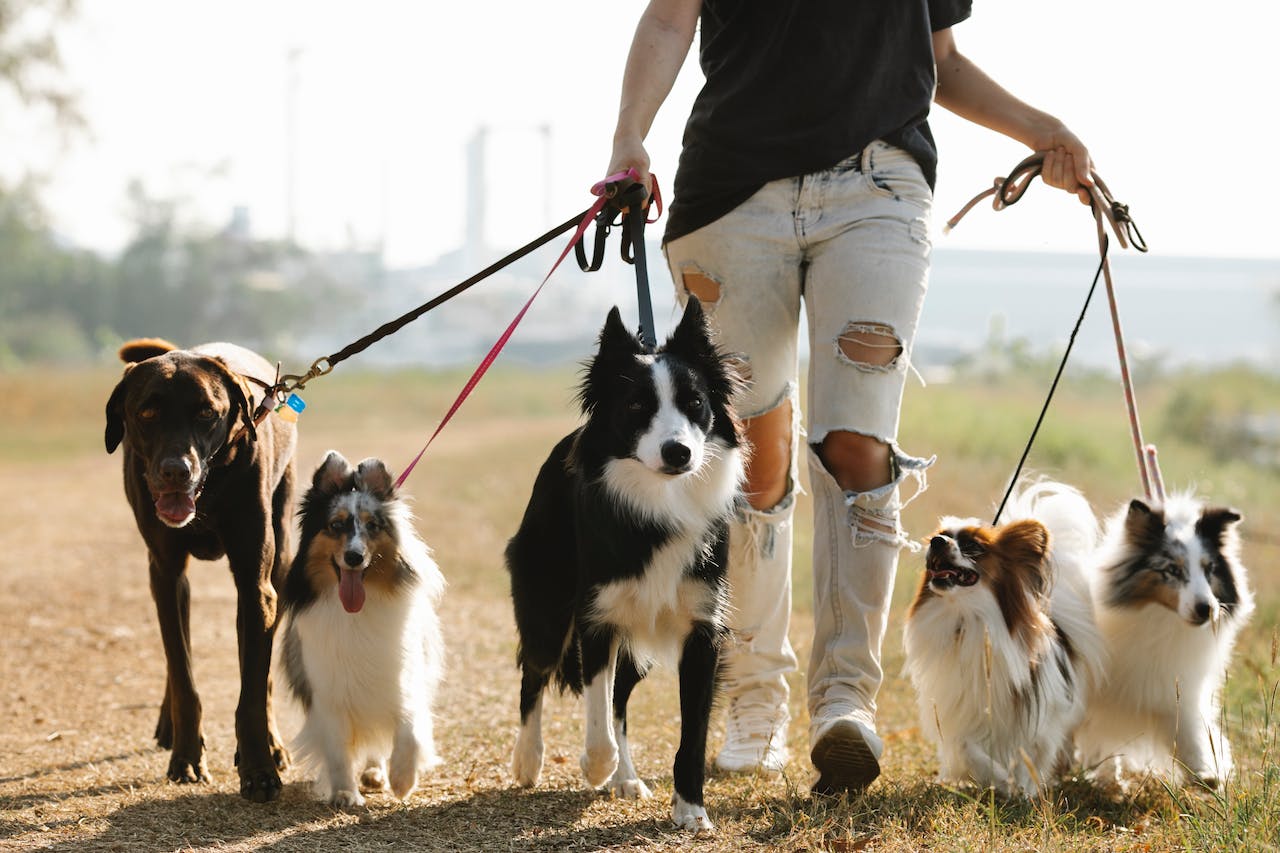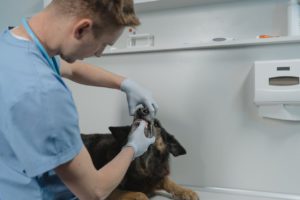
Welcoming a new pet into your home is a significant event. Whether you’ve decided to adopt a playful puppy, a curious kitten, or a rescued pet, it’s an exciting journey with responsibilities. As a pet owner, you must shift your lifestyle to create a pet-positive environment that fosters love, health, and happiness for your new furry family member. In this comprehensive guide for beginners, we’ll explore the essential steps of pet care, from preparation and training to nutrition and well-being.

Health and Wellness
1. Regular Vet Visits:
Schedule regular check-ups with your vet. These visits help monitor your pet’s health early and catch any potential issues, including dental concerns. Your veterinarian can provide professional pet dental care and offer guidance on maintaining your pet’s oral hygiene between consultations.
2. Vaccinations:
Stay up-to-date on vaccinations to protect your pet from common diseases. Your veterinarian will suggest a vaccination timetable.
3. Preventative Care:
Administer flea, tick, and heartworm preventatives as recommended by your vet. Regular grooming is also essential.
4. Recognize Warning Signs:
Learn to recognize signs of illness or distress in your pet, such as changes in appetite, behaviour, or energy levels. Promptly seek veterinary care when needed.
Exercise and Enrichment
Pets need both mental and physical stimulation to thrive:
1. Regular Exercise:
Provide daily exercise tailored to your pet’s breed and energy level. Dogs may need walks, playtime, and off-leash runs, while cats benefit from interactive toys.
2. Mental Stimulation:
Engage your pet’s mind with puzzle toys, treat-dispensing toys, and games. Mental stimulation holds equal importance alongside physical activity.
3. Play and Bonding:
Dedicate quality time to engage in play and build a strong bond with your pet. This strengthens your connection and enhances their well-being.
Nutrition and Feeding
Providing your pet with proper nutrition is fundamental to their well-being:
1. Consult a Vet:
Schedule a vet appointment to determine the best diet for your pet’s age, breed, and health condition. Your vet can recommend a suitable brand of pet food.
2. Age-Appropriate Food:
Choose food appropriate for your pet’s life stage, whether puppy/kitten, adult, or senior. Each life stage demands specific nutritional needs.
3. Portion Control:
Follow feeding guidelines on the pet food packaging, and avoid overfeeding. Implementing portion control is crucial to prevent obesity and related health concerns.
4. Fresh Water:
Always provide fresh, clean water for your pet. Ensure frequent cleaning and refilling of their water dish.
Training and Socialization
Proper puppy training in Perth and socialization are essential for a well-adjusted and happy pet:
1. Basic Obedience:
Instruct your pet in fundamental commands such as sit, stay, and come. Positive reinforcement, such as treats and praise, can be effective in training.
2. House Training:
For dogs, establish a consistent bathroom schedule and reward them for successful outdoor trips. Cats typically use a litter box, so keep it clean and accessible.
3. Socialization:
Expose your pet to different people, animals, and environments to build their social skills and confidence. Early socialization is crucial for puppies and kittens.
4. Patience and Consistency:
Be patient and consistent in your training efforts. Consistency in commands and routines will help your pet understand expectations.
Love and Affection
Above all, pets thrive on love and affection:
1. Quality Time:
Spend time with your pet every day. Petting, cuddling, and talking to them create a strong emotional bond.
2. Positive Reinforcement:
Use positive reinforcement to reward good behaviour. Positive interactions build trust and a positive relationship.
3. Patience and Understanding:
Understand that pets have their personalities and quirks. Be patient and empathetic as you get to know them.
Preparing Your Home
Finally before your pet’s arrival, it’s essential to prepare your living space to ensure their safety and comfort:
1. Pet-Proofing:
Pet-proofing is crucial, just as you would childproof a home for a baby. Remove potential hazards like toxic plants, chemicals, and small objects your pet could ingest. Secure electrical cords and sharp objects out of reach.
2. Create a Safe Space:
Please set up a designated area for your pet, such as a crate or a cozy corner with their bed and toys. This gives them a sense of security and a place to retreat.
3. Pet-Friendly Supplies:
Stock up on pet essentials, including food, water dishes, bowls, a leash and collar (for dogs), a litter box (for cats), grooming tools, and waste disposal bags.
Becoming a pet owner is a remarkable journey filled with joy, companionship, and love. It’s a lifestyle shift that requires responsibility and dedication. You’ll create a pet-positive environment where your furry companion can thrive by preparing your home, providing proper nutrition, investing in training and socialization, maintaining their health and well-being, and showering them with love and affection. Remember that being a pet parent is a lifelong commitment, and the bond you share with your pet will bring happiness and fulfilment to both your lives.